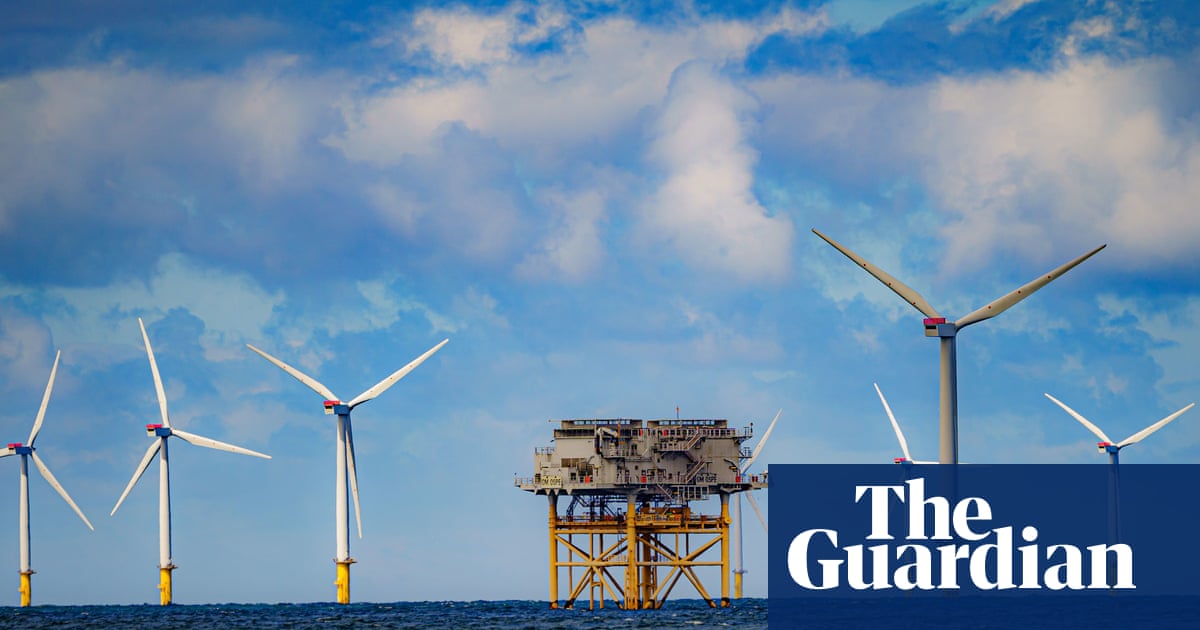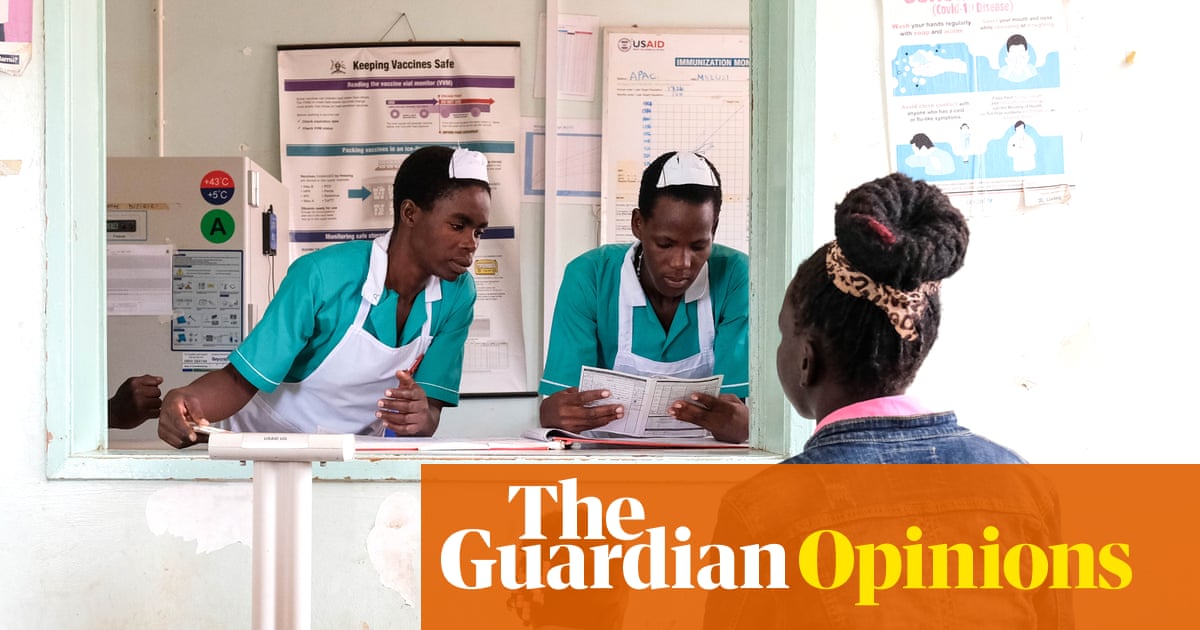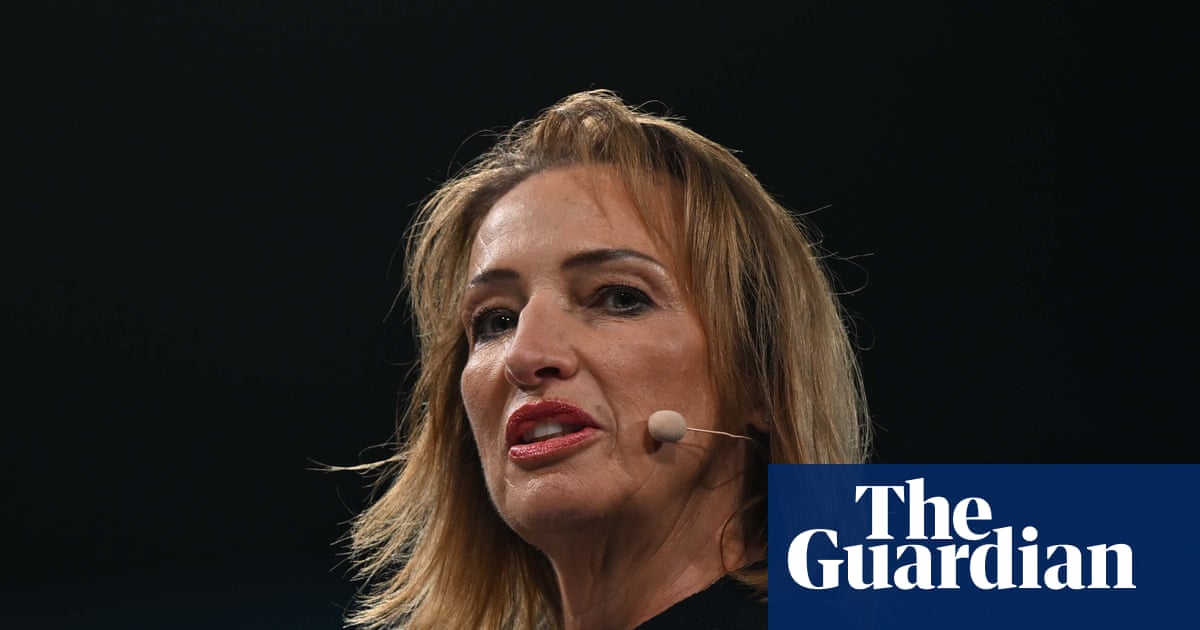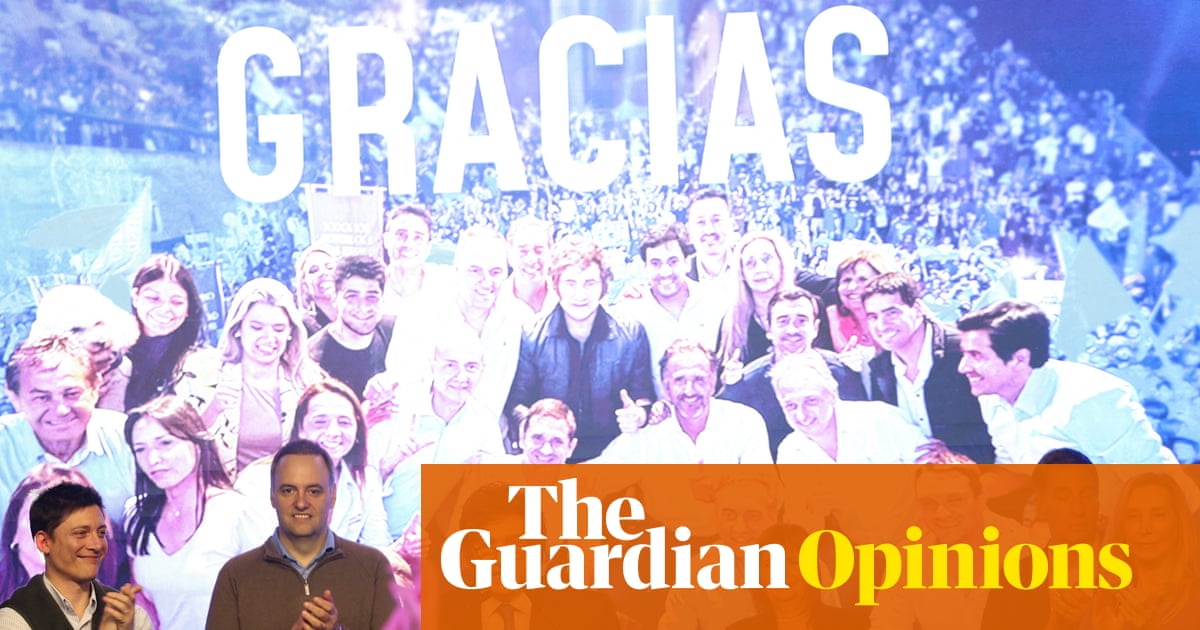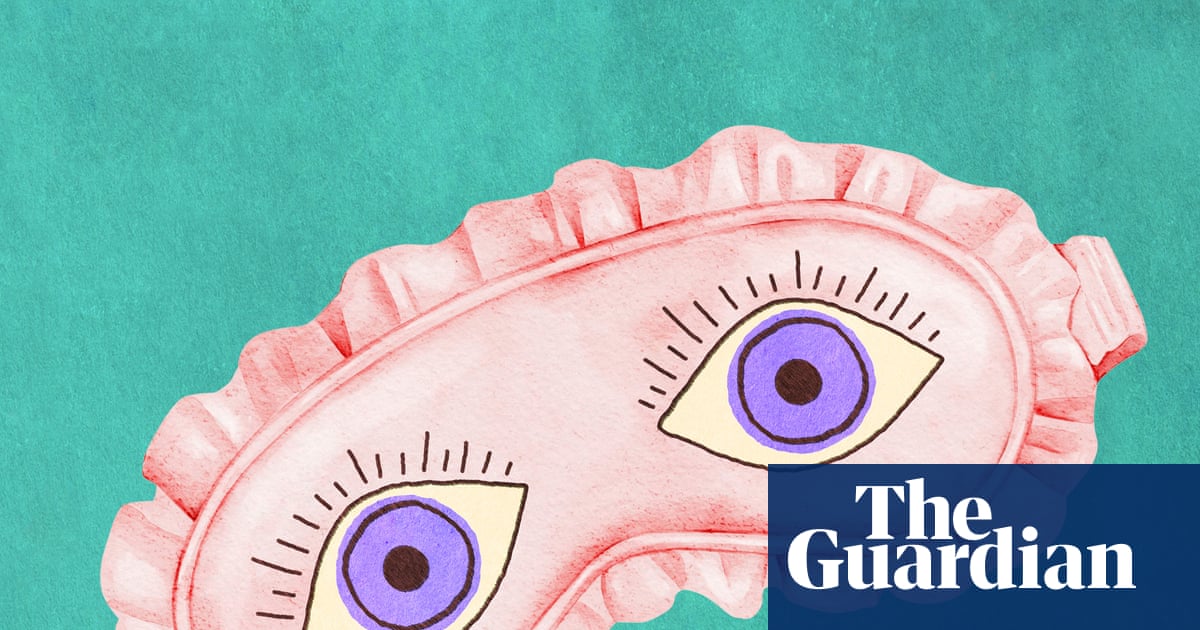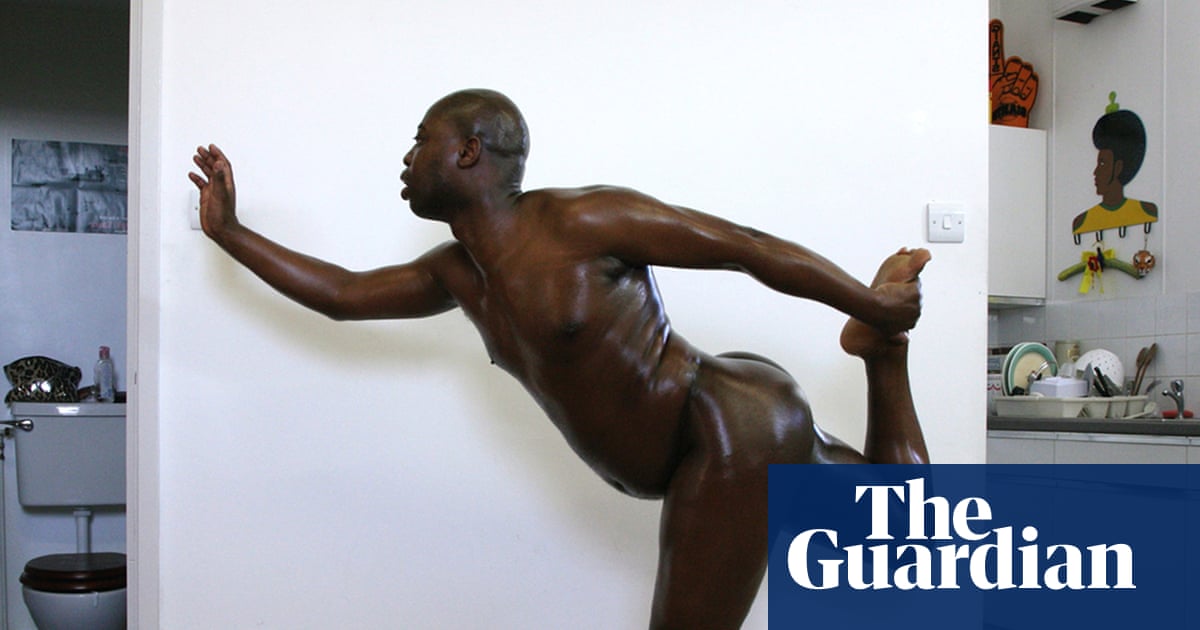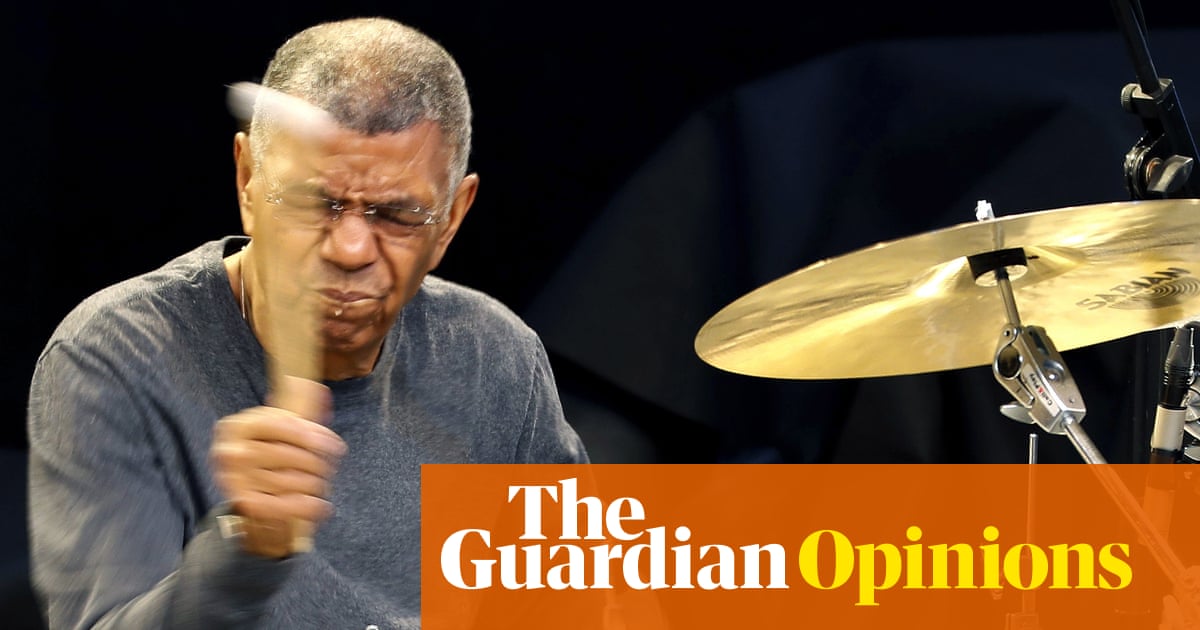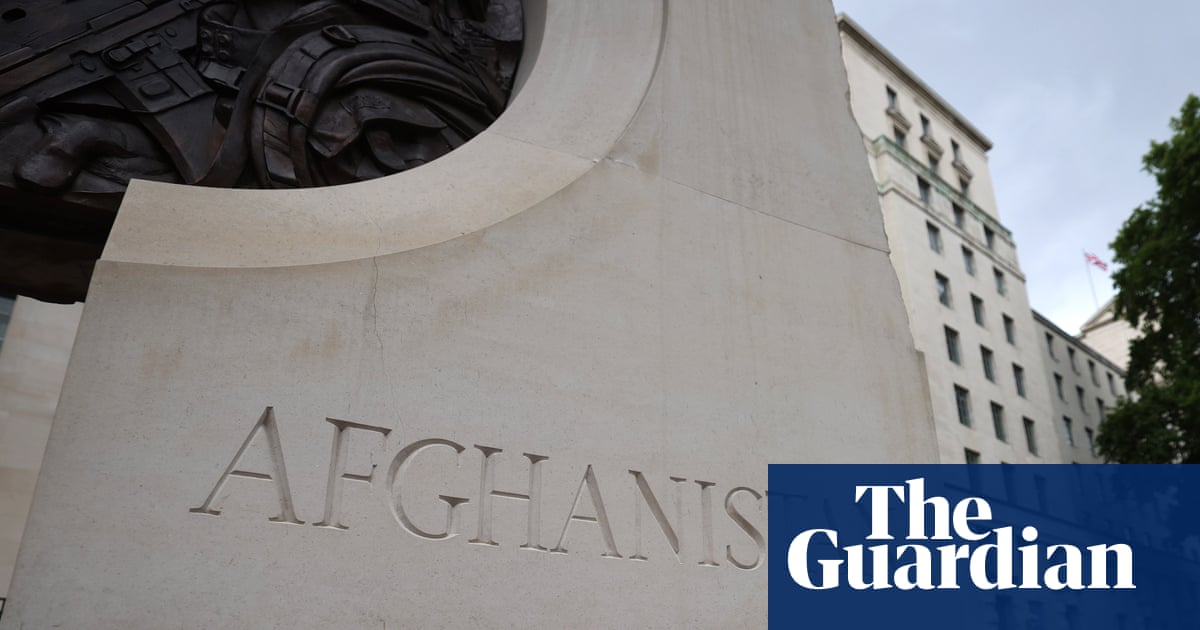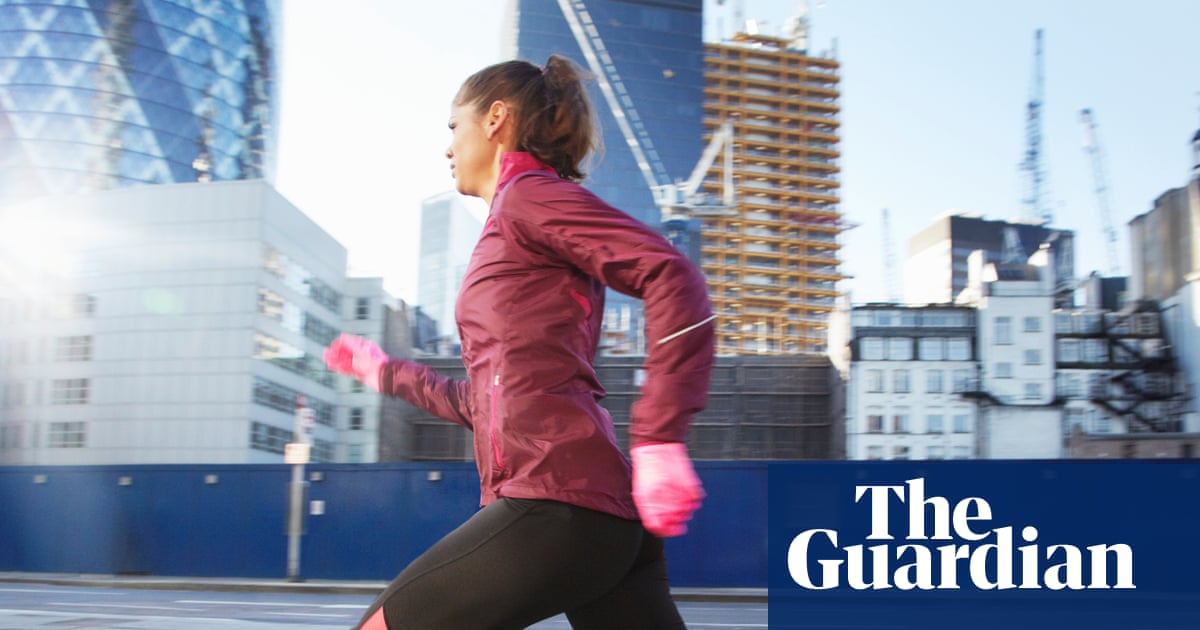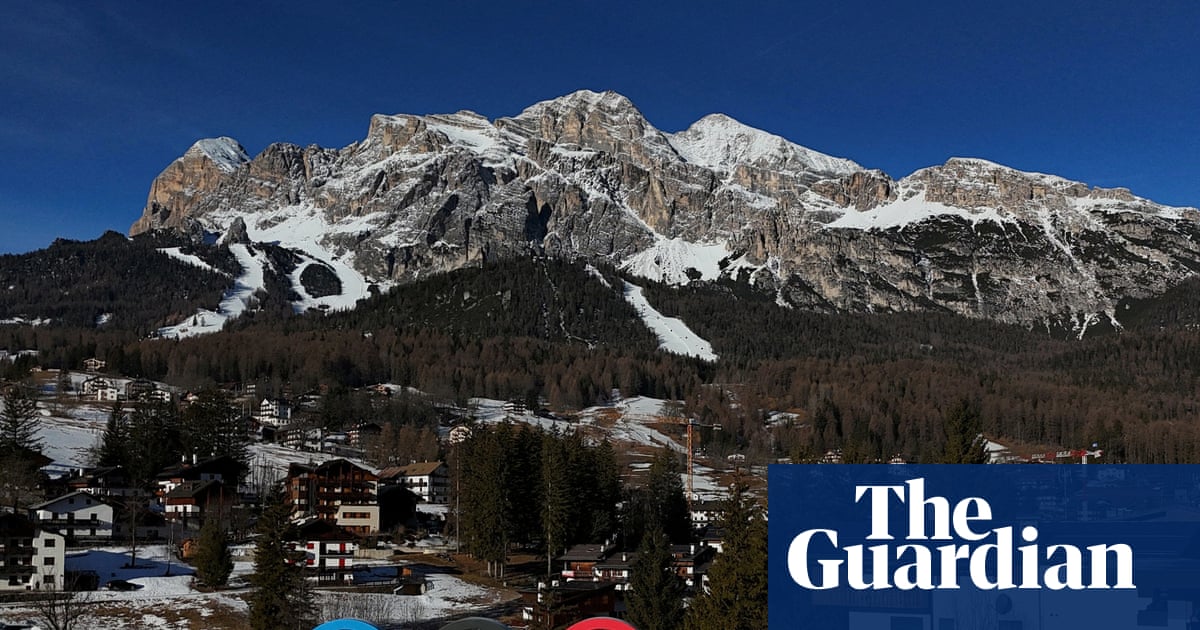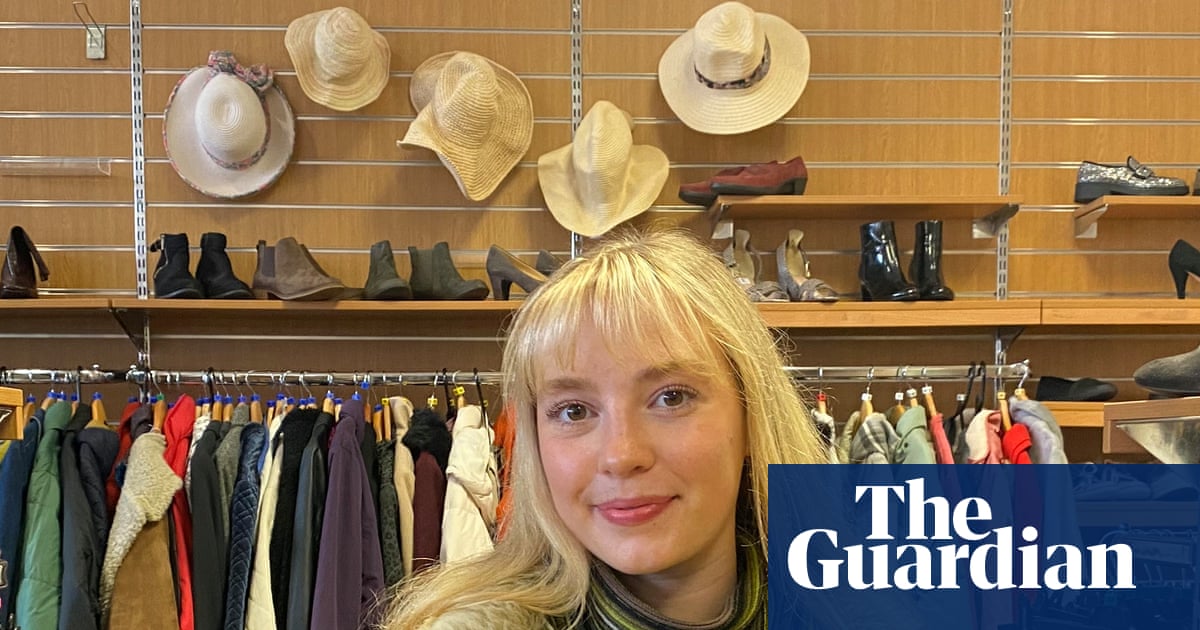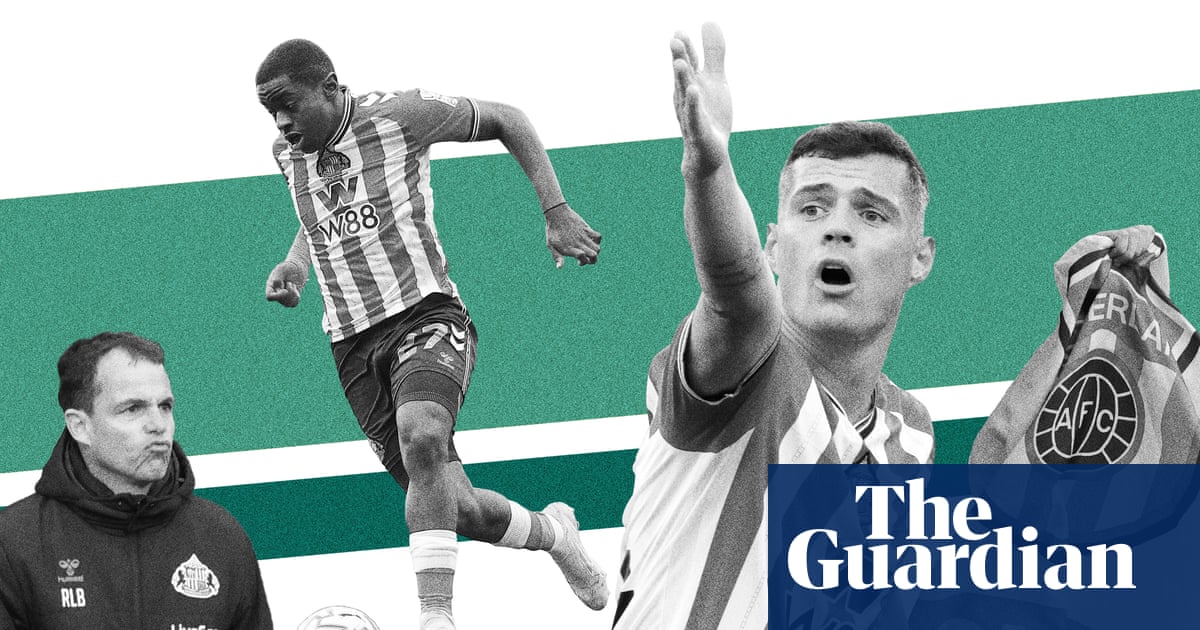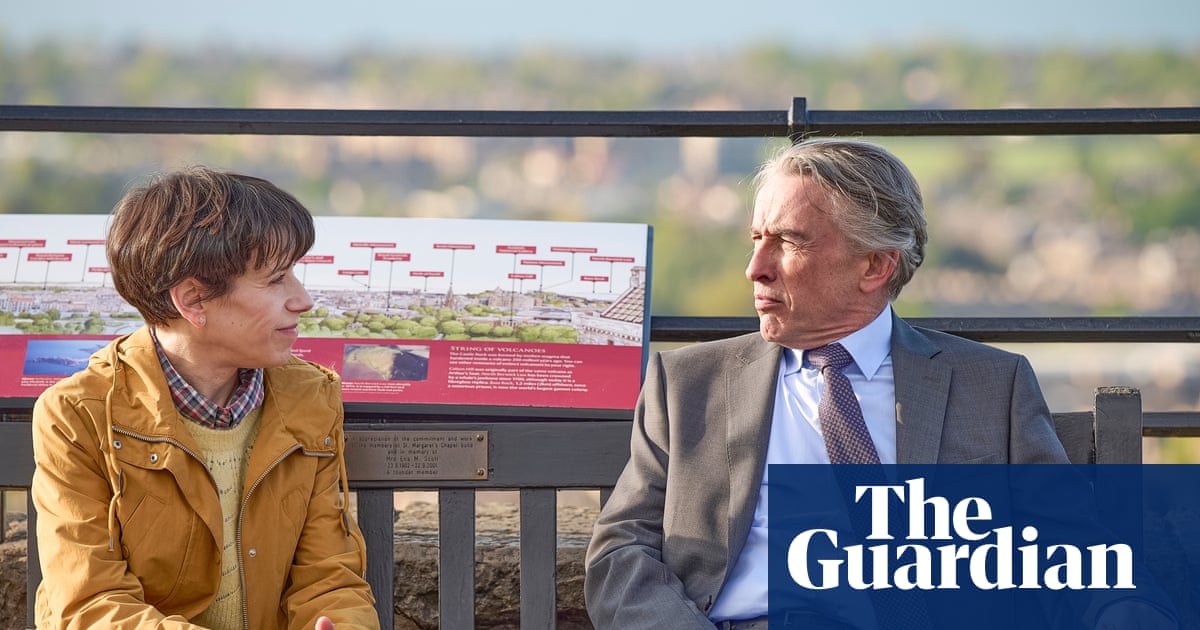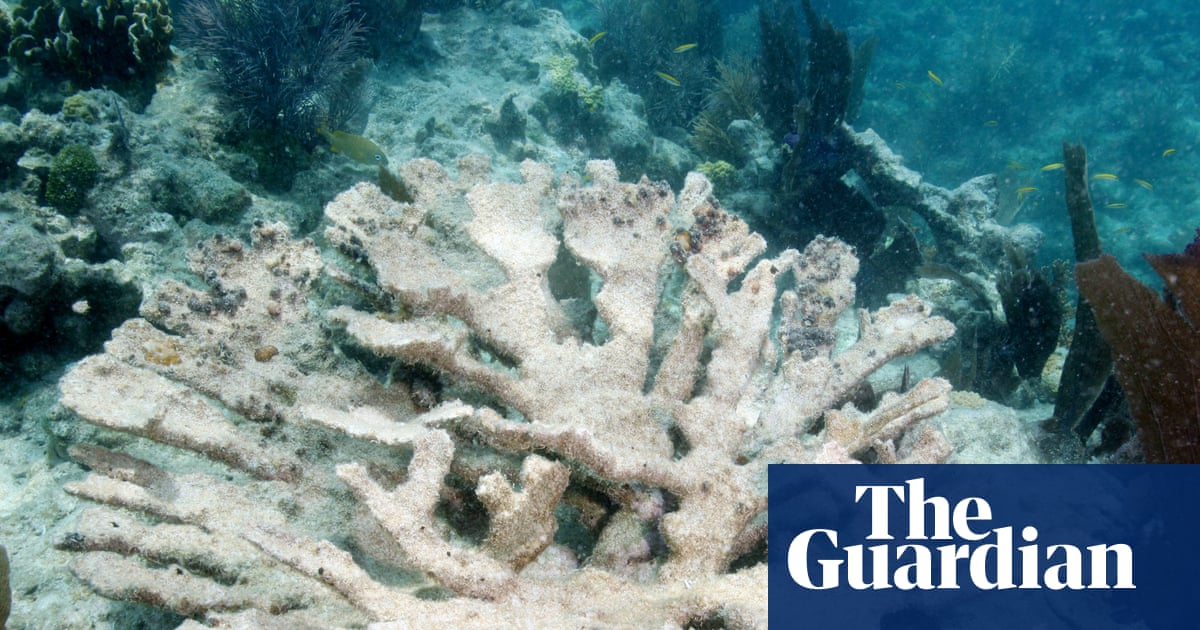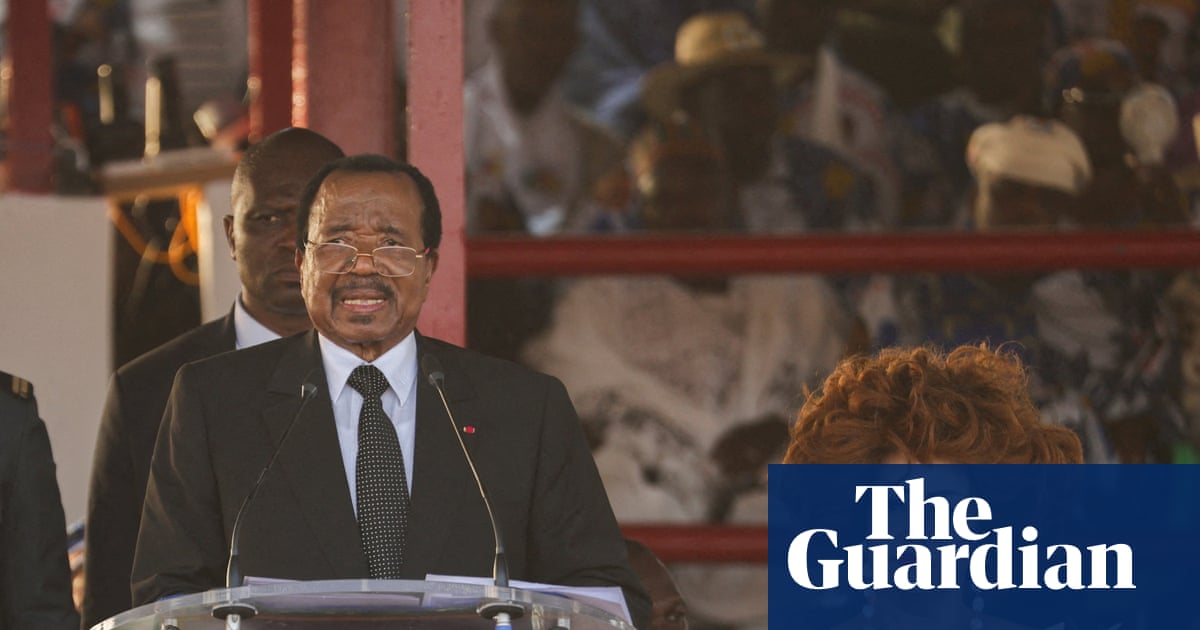Jon and Alex
Jon (21) and Alex (25) share an intimate moment at Alex’s home in St Petersburg, Russia, on 18 May 2014. This image became well known as a symbol for LGBTQ+ rights in Russia and, despite experiencing attacks, Jon and Alex continued their activism until Alex’s death from heart failure in 2019. Homophobia in Russia has been rising following a 2013 legislation banning so-called ‘gay propaganda’. Queer Havens is free to visit in Westerpark and at Het Meterhuisje, Amsterdam, The Netherlands, 12 July to 10 August
Photograph: Mads Nissen/World Press Photo
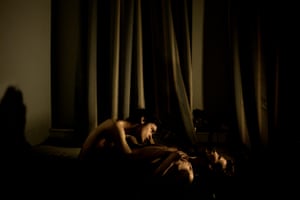
The Gay Space Agency
A staged re-creation of the original Mercury Seven crew from 1960 photographed in New York City. This project combines fiction with fact in order to confront the US space program’s historical exclusion of openly LGBTQ+ astronauts. In a review of the Nasa and United States National Archives, the photographer found no documentation on the contributions of the queer community to the space programme. The absence inspired her to imagine The Gay Space Agency, a diverse and inclusionary institution that commemorates and celebrates the history of queer astronauts
Photograph: Mackenzie Calle//World Press Photo
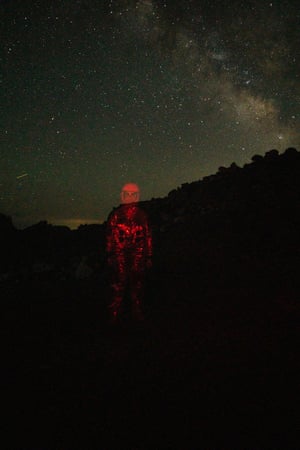
Le Creole
For the past four years, the most emblematic queer parties in Paris have taken place in a slightly decrepit bar called Le Chinois. The organisers, a collective known as La Creole, bring together personalities, sexualities and gender identities under the Caribbean carnivalesque spirit. La Creole, symbolically named to evoke cultures of the West Indies, host unforgettable evenings where voguing, techno and sound system culture meet. La Creole reminds France of its diverse children and offers LGBTQ+ people descended from former French colonies a safe space to dance without fear
Photograph: Adrien Selbert/Pride Photo
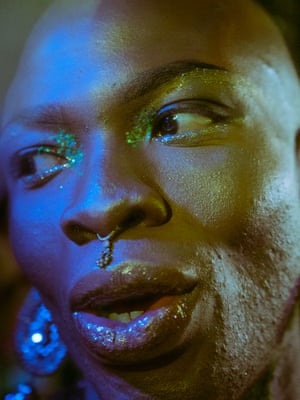
The Pink Choice
Doan Huu Dieu (25) and Nguyen Trong Hieu (49), who have been together for three years, wake up at home in Vietnam. In 2012, the Vietnamese government announced it was considering recognising same-sex marriage and Vietnam’s first Pride parade took place in Hanoi. By 2015, a bill lifting the ban on same-sex marriage was in effect, but these unions are not legally recognised. In 2020, Human Rights Watch reported discrimination against Vietnam’s young LGBTQ+ community. Same-sex marriages are still not recognised
Photograph: Maika Elan/World Press Photo
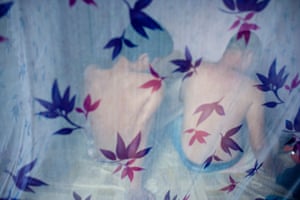
Home for the Golden Gays
Al Enriquez (86) looks through a curtain in Manila’s Golden Gays’ home, a community of older LGBTQ+ people from the Philippines who have lived together for decades, caring for each other as they age, and staging shows and pageants to make ends meet. The community was founded in the 1970s by lawyer and activist Justo Justo, who opened his home to shelter ‘lolas’ – an affectionate local term for grandmothers adopted by the group. When Justo died in 2012, the community were evicted and some experienced homelessness until 2018, when they began renting a house in Manila
Photograph: Hannah Reyes Morales/World Press Photo
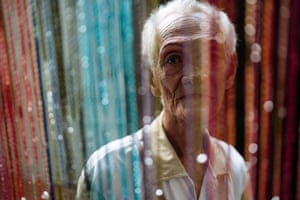
Fathom
Fathom presents a series of staged documentary photographs honouring the stories of LGBTQ+ individuals who have lost their lives in fatal homophobic attacks. The photographer works with individuals from the LGBTQ+ currently living in Turkey to create these powerful images, drawing on modes of non-normative storytelling, and creating a connection between those who have been killed, and those who survive, visually representing the struggles and very real danger that the LGBTQ+ community continues to face
Photograph: Cansu Yıldıran/Pride Photo
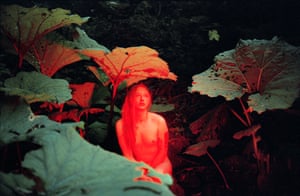
Mother Moves, House Approves
Participants at Heavenly Bodies, an underground drag ballroom event during Lagos Pride, celebrate the 2024 ‘mother of the year’ winner. Members of the LGBTQ+ community in Nigeria face legal prosecution, widespread social discrimination and physical violence. Held in a secret location, Heavenly Bodies: Notes on Fola Francis was one of the largest drag ballroom experiences in Nigeria. The 2024 series was named after the late Fola Francis, a trans icon, activist and the first openly transgender person to walk the runway during Lagos Fashion Week
Photograph: Temiloluwa Johnson/World Press Photo
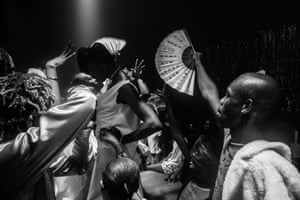
Dead Family
Grandparents, aunts and cousins gather to celebrate Beatriz’s 15th birthday during the 1970s in Catia, Caracas, Venezuela. Andrés Gregorio Pérez’s project Dead Family explores the invisibility of LGBTQ+ identities in traditional family albums, which often reflect imposed, heteronormative expectations. Through creative edits of personal family photos, participants reimagine inclusive memories that celebrate their true selves and challenge dominant narratives
Photograph: Andrés Gregorio Pérez/Pride Photo
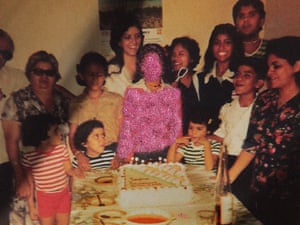
By The Time She Grows Up
Quetzal Maucci’s long-term project presents a personal exploration of her own family structure. Born in the US, Quetzal is the daughter of two queer women who migrated from Peru and Argentina respectively. Their names are Flavia and Lucrecia, or as Quetzal calls them ‘Mami y Mamú’
Photograph: Quetzal Maucci/Pride Photo
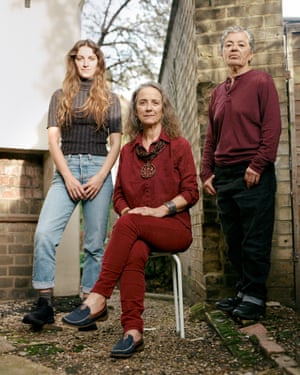
Kysaan & Ky
Ky Smiley poses for a self-portrait with his six-year-old brother in Columbus, Ohio. Their father is present at the shoot and is supportive of his talents. Ky frequently works with his family members and uses photography to explore his identity and place within society. ‘Learning how to discuss my top surgery with my little brother has been simpler and more enlightening than I could have imagined. He helped me during recovery and I can not be more thankful’
Photograph: Ky Smiley/Pride Photo
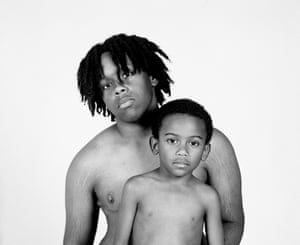
Sadness and Fear
Three women at Kesaria Abramidze’s funeral. Abramidze, a Georgian transgender woman, was found brutally murdered in her apartment in September 2024. She was a well-known transgender model – one of the first in the deeply conservative country to openly come out. The fate of Abramidze, who is not the first transgender woman to be murdered in Georgia, brought not only sorrow but also highlighted the fears of others in the community
Photograph: Tamta Gokadze/Pride Photo
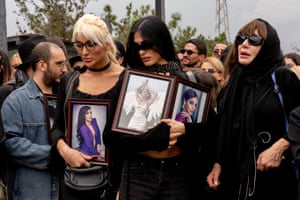

 3 months ago
49
3 months ago
49
